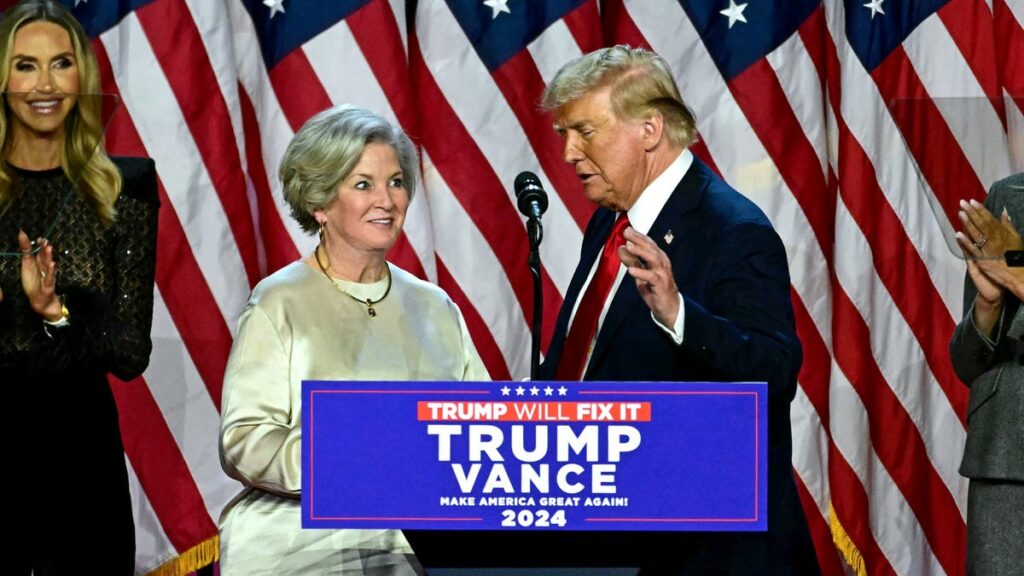‘He’s a great guy’: Trump responds to ‘President Musk’ comments
Donald Trump dismissed recent comments that his ally Elon Musk might be the “real president.”
Both friends and foes are nervous about President-elect Donald Trump’s second shot at an America-first foreign policy. Friends are worried about the future of their long-standing carefully nurtured alliances, like NATO, and foes like Iran and China are worried about how much attention Trump will pay to hurting their economies. Frenemies, on the other hand, are worried about getting caught in the indiscriminate use of Trump’s latest all-purpose magic wand: tariffs.
I consider countries like France, Brazil and India to be frenemies. They are friends for sure, but they also have made no secret of their desire for a multipolar world. Multipolar is a code for a world in which the U.S. has lost its primacy. Friends do not wish that their friend loses its power and influence and becomes relatively weaker. Friendly nations of the EU actually met in Brussels to strategize on how to cope with Trump 2.0. They plan to “hit back hard” on trade if Trump imposes tariffs.
Many countries that the U.S. has criticized for their human rights records, especially India, face a trade-off. They feel that while the Trump administration will not bother them much for how they treat their own citizens, particularly the minorities, they could be collateral damage in Trump’s America-first economic crusades.
Several weeks ago, I returned from a picturesque city called Belo Horizonte in Brazil. I was there to give a couple of lectures to the faculty of international law at the University of Minas Gerais. One lecture was on the geopolitical goals of the expanding group of non-Western states, BRICS+, and the other was about U.S. foreign policy in the Trump era. You can find both my lectures on my YouTube show called Khanversations.
In the discussions that I had in both formal and informal settings with scholars, diplomats and students, the wariness was palpable. Everyone wants to know how much damage Trump is going to do this time. Will he withdraw from all climate-related treaties? Will he leave NATO? Will he really impose 100% tariffs on BRICS+ countries? What will be the impact of Trump tariffs on the global economy? Does he really mean it, or are these just threats designed to get concessions from other countries? What if some countries call his bluff? Will there be a war with Iran? The conclusion we reached in all our discussions was the same: It is hard to predict what Trump will really do, but this time he means business and will be more impactful.
Will Trump disrupt the international order? Probably not
Trump’s return coincides with a very difficult moment in global politics. The power differential between the U.S. and China is decreasing in all domains, economic, military and soft power. Traditional U.S. allies, too, are declining. France and Germany are in a political mess, and their economic forecasts look gloomy. Both are expected to record around or less than 1% economic growth in the coming year.
Japan, America’s most important military ally in Asia, has seen a 33% decline in its economy. It used to be a $6 trillion economy, and now it is a little above $4 trillion. We have entered a transitional tunnel with no clear idea of what is on the other side. Nations like China, Russia, India, Brazil, Turkey and Indonesia and a much-worried EU want more say in the management of the global system at the expense of the U.S. But none of them has provided any promising vision of the future.
For the international system, Joe Biden’s presidency was a complete and utter failure. He failed in every endeavor he undertook — he failed to end Russia’s aggression, failed to prevent the war in the Middle East from expanding, failed to bring a ceasefire in Gaza, failed to promote democracy, failed to strengthen the liberal order, which is crumbling, and failed to arrest China’s growing influence worldwide. No wonder his approval ratings were so dismal and nearly three out of four Americans felt things were going in the wrong direction. His failure as president is the principal reason for the return of Trump.
Unfortunately for the world, the relief that Biden is gone is replaced with anxiety that Trump is back.
Can Trump provide the leadership this world so badly needs at this moment of transition? Will he stabilize the ship in turbulent waters, or will he overturn it? Will he save the international order or destroy it?
To the Brazilian students who asked me these questions, my answer was “don’t worry.” He will be maximalist at home and minimalist abroad. He has a huge domestic agenda that includes mass deportations, cultural transformation, rejuvenating manufacturing, government reform and much more. He will not have much time for the international system. The international system will suffer from neglect but not from systematic disruption. The same cannot be said about the U.S. One-half of America is wary and nervous, but the other is hopeful and excited about Trump 2.0.
Dr. Muqtedar Khan is professor of international relations at the University of Delaware and the host of a YouTube show called Khanversations.
Source link : http://www.bing.com/news/apiclick.aspx?ref=FexRss&aid=&tid=67759c0aebae46359ad2083d80f7bed7&url=https%3A%2F%2Fwww.usatoday.com%2Fstory%2Fopinion%2F2025%2F01%2F01%2Ftrump-administration-foreign-policy-worries-global-alliances-opinoin%2F77354554007%2F&c=5545960937353028926&mkt=en-us
Author :
Publish date : 2024-12-31 19:25:00
Copyright for syndicated content belongs to the linked Source.
